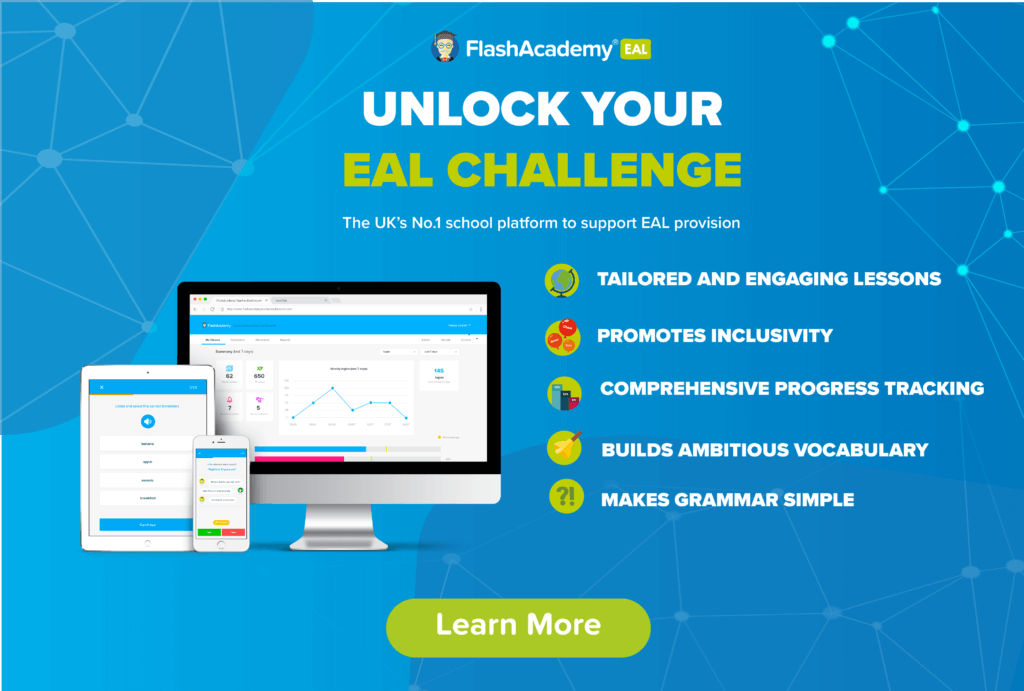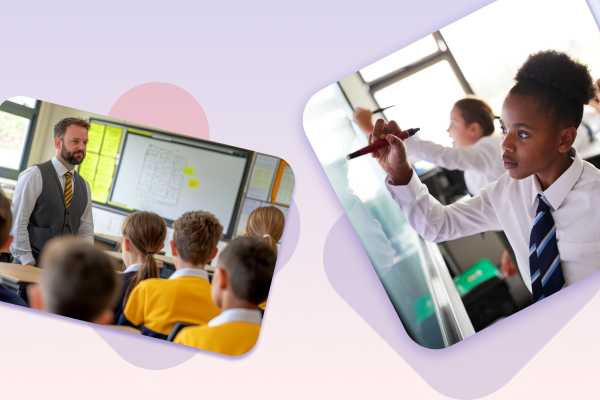

As teachers, we know that ending a story with ‘I woke up and it was all a dream’ is unoriginal. We tell our pupils time and time again; still, many children find it difficult to express themselves effectively or let their imagination spill onto the page.
How can we then teach this same principle to EAL pupils, who already face the challenge of learning English and learning through English simultaneously?
Don’t worry, you won’t need to drown in dictionaries and frantic Google searches of ‘EAL ideas for fun vocabulary words & synonyms’ for much longer – hopefully our upcoming feature will help smooth the process!

Vocabulary development
The common consensus among experts is that children need to learn vocabulary within a rich context and recognise it in the world around them. Otherwise, they will only have a superficial understanding of the word and be unable to use it effectively. ‘Meaning’ goes beyond being able to state a definition, and extends to understanding the relationships between words, the shades of meaning and connotations that they are laden with, and how to use words within sentences. Recognising a verb is not hugely useful unless you know how to conjugate that verb and use it in different tenses. Likewise, knowing that a word is an adjective is not going to have much value if you don’t know that it is likely to offend if you use it to describe someone.

Learning vocabulary needs to be tailored to the life experience and interests of the child in order to make it memorable. Copying lists of vocabulary into a notebook is a concrete cornerstone of traditional language teaching. However, this does not cement words into memory as much as learning through play, art and drama, or create the sense of success that comes through rising to a challenge and working with teammates to win points or overcome barriers.
Also, what motivates children to learn and how do we reward them for their achievements? The type of reward can vary, from the buzz of immediate satisfaction that comes from instant feedback to the longer-term rewards of delayed gratification. We all know the pupils who aren’t satisfied unless they’ve collected all the stickers and got a certificate, and the ones whose day is made by the simple recognition that comes from verbal praise.
Ideally, we want to encourage them until a point is reached where they develop a love for words and the motivation to discover more!

Introducing… Wow Words
FlashAcademy® aims to bring these principles to life with our new series of Wow Word lessons, coming soon! These EAL ideas are designed to help students learn more ambitious vocabulary to improve their speaking and writing.
Each word is accompanied by a visually attractive animation that brings the word to life and places it within a recognisable context. The animations will be available both within the app for pupils to discover independently as they explore the Wow lessons, and on the website, for teachers to show to the whole class to spark further discussion and language practice. The Wow Word lessons will be accompanied by a range of printable resources that include instructions and suggestions for possible adaptations depending on learner needs and time available. There will also be an exclusive downloadable teaching pack for schools that are interested in running a dedicated Wow Words intervention or using the resources for a whole school vocabulary strategy.
You can download an exclusive sample of the EAL ideas resources here!


